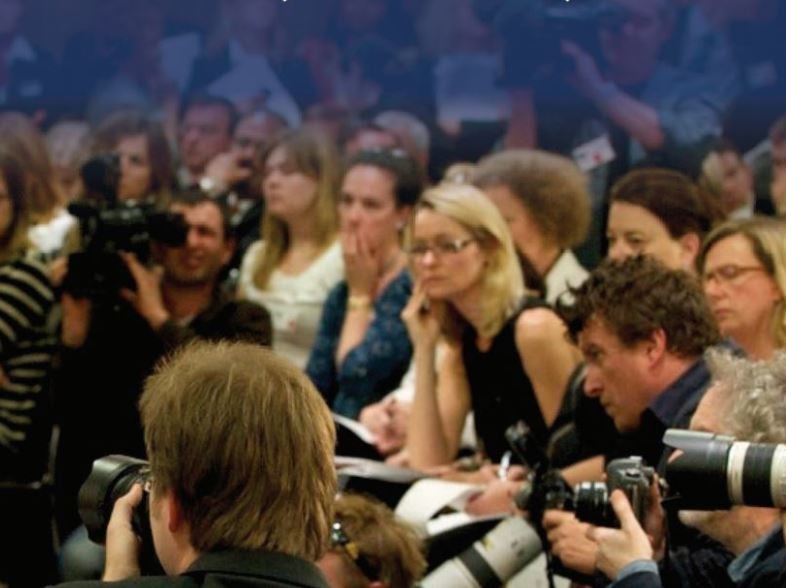
A survey of the UK’s journalists has found that those describing themselves as black are particularly under represented and that most young journalists earn less than £29,000 a year.
The Reuters Institute for the Study of Journalism at the University of Oxford surveyed 700 professional journalists working in the UK for its report Journalists in the UK. According to the government Labour Force Survey there are currently 64,000 journalists in the UK.
In terms of the ethnic make-up, those who said they were black made up 0.2 per cent of the survey sample despite making up 3 per cent of the UK population, according to the 2011 consensus. Asian Britons made up 2.5 per cent of the survey sample despite making up 7 per cent of the UK population.
While women make up 45 per cent of UK journalists, according to the survey, they are less well paid compared to men and are not as well represented in senior positions.
More than half of women earn less than £2,400 a month compared with 35 per cent of men while just over one-fifth earned more than £4,000 a month compared with 36 per cent of men.
More than half of those surveyed now work online.
Print journalists make up 44 per cent of survey respondents, falling from 56 per cent in 2012 when a similar survey was conducted in 2012. The report says online journalists have risen from 26 per cent of the total in 2012 to 52 per cent.
A journalist who works exclusively on the web will produce nearly twice as many (186 per cent) stories as those who don’t, according to the study.
Some 86 per cent of journalists believe the time available for researching stories has decreased.
Of those journalists who began their careers in the last three years, 98 per cent have a bachelor’s degree and 36 per cent have a master’s degree. However, only 41 per cent of all working journalists have degrees relating to journalism.
Most UK journalists believe it is justified to pay for confidential information when it is in the public interest. This compares with 5 per cent of American journalists.
A further 81 per cent think it is ok to use confidential business or government documents without permission compared with 58 per cent in the US.
Report lead-author, Dr Neil Thurman, said: “This report shows the increasing pressures that journalists face due to the social, economic, and technological changes effecting journalism. However, the survey suggests despite this and the fall-out from the Leveson Report, UK journalists are still more aggressive than US media in their pursuit of important stories.”
Here are some other notable findings:
About twice as many journalists believe their editorial freedom has decreased over time as believe it has increased
The report argues this could be because of the increasing influence of audiences and public relations communications. Some 41 per cent of journalists surveyed for the report said data and research on what audiences like to read is now ‘very’ or ‘extremely’ influential; 61 per cent thought the influence of public relations had increased over the last five years.
83 per cent of journalists in their mid- to late-20s earn less than £29,000
The survey shows how young journalists, despite having higher formal qualifications, are relatively poorly paid. About 20 per cent of journalists have gross yearly earnings of less than £19,200, so are on incomes that are either close to or under the living wage.
77 per cent of journalists said that being a detached observer was ‘very important’ or ‘extremely important’
The roles mentioned most frequently show that journalists see themselves as providers of accurate information, analysis, entertainment and scrutinisers of those in power. A minority of those surveyed said setting the political agenda, being an adversary of government, or supporting national development were important roles to fill as a journalist.
Half of the journalists surveyed describe their political stance as ‘left-wing’
About half of journalists said they were left of centre; the other half were split between the centre and the right-wing. Right-of-centre political beliefs increase with seniority.
45 per cent of UK journalists see it as ‘very’ or ‘extremely’ important to provide news that attracts the largest audience
This is a higher proportion than found in a survey of US journalists six years ago, which the report says may be partly explained by the increased financial pressures on journalism.77 per cent of journalists said they felt their job was more influenced by profit-making pressures than it had been five years ago, with 66 per cent saying the same about advertising.
Journalists have little trust in religious leaders and trade unions
Some 76 per cent of journalists think religion has little or no influence on their work and 61 per cent are not members of a formal faith, a lower percentage than in the general population. They trust religious leaders and trade unions less than Parliament, the police, and the military, although politicians and political parties are at the bottom of their list.
Email pged@pressgazette.co.uk to point out mistakes, provide story tips or send in a letter for publication on our "Letters Page" blog
